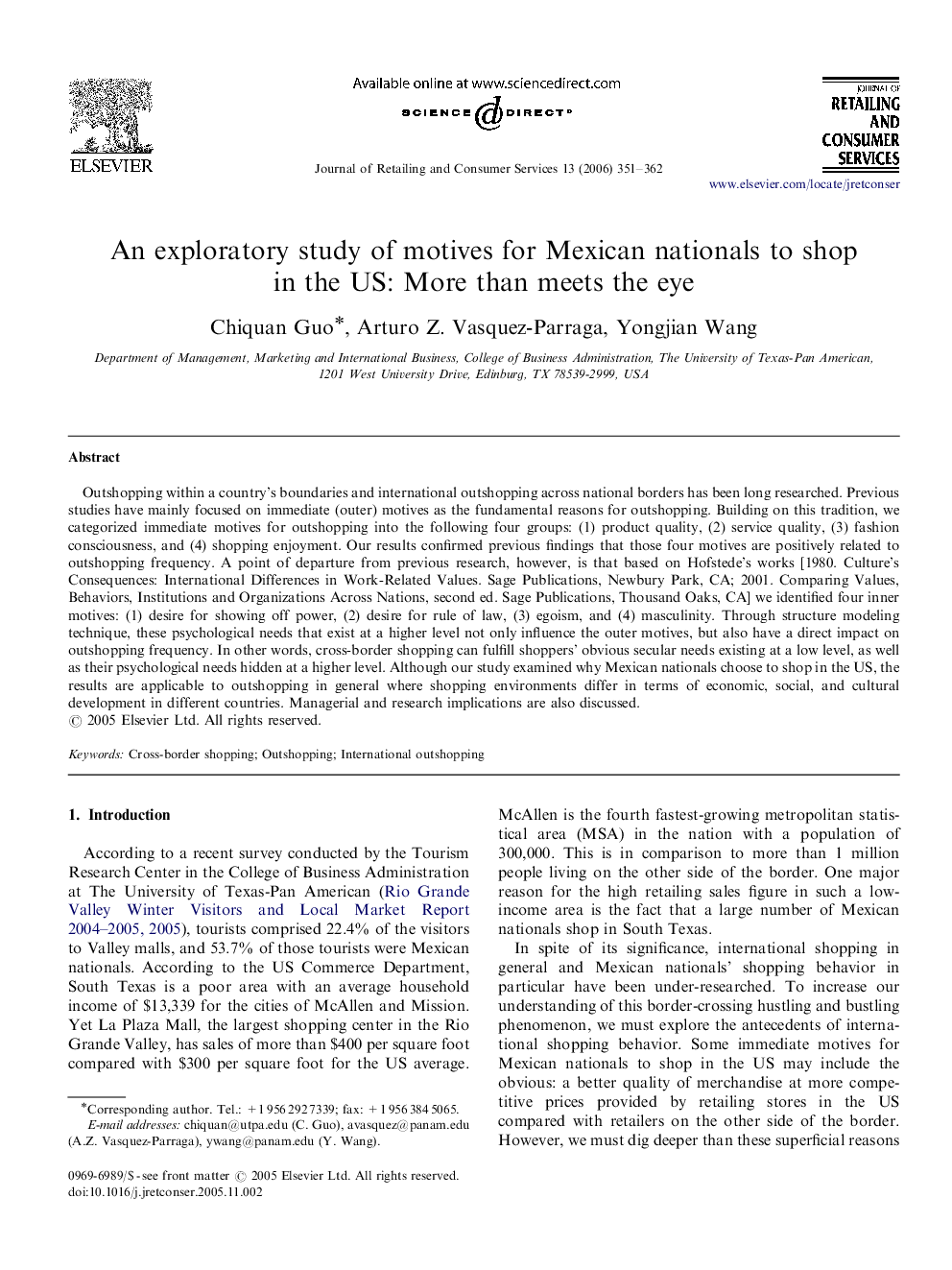| Article ID | Journal | Published Year | Pages | File Type |
|---|---|---|---|---|
| 1029632 | Journal of Retailing and Consumer Services | 2006 | 12 Pages |
Outshopping within a country's boundaries and international outshopping across national borders has been long researched. Previous studies have mainly focused on immediate (outer) motives as the fundamental reasons for outshopping. Building on this tradition, we categorized immediate motives for outshopping into the following four groups: (1) product quality, (2) service quality, (3) fashion consciousness, and (4) shopping enjoyment. Our results confirmed previous findings that those four motives are positively related to outshopping frequency. A point of departure from previous research, however, is that based on Hofstede's works [1980. Culture's Consequences: International Differences in Work-Related Values. Sage Publications, Newbury Park, CA; 2001. Comparing Values, Behaviors, Institutions and Organizations Across Nations, second ed. Sage Publications, Thousand Oaks, CA] we identified four inner motives: (1) desire for showing off power, (2) desire for rule of law, (3) egoism, and (4) masculinity. Through structure modeling technique, these psychological needs that exist at a higher level not only influence the outer motives, but also have a direct impact on outshopping frequency. In other words, cross-border shopping can fulfill shoppers’ obvious secular needs existing at a low level, as well as their psychological needs hidden at a higher level. Although our study examined why Mexican nationals choose to shop in the US, the results are applicable to outshopping in general where shopping environments differ in terms of economic, social, and cultural development in different countries. Managerial and research implications are also discussed.
